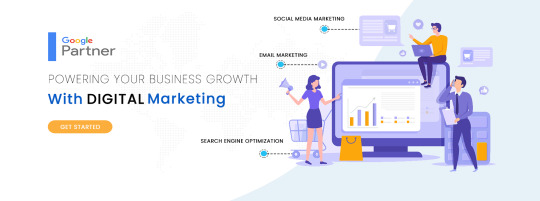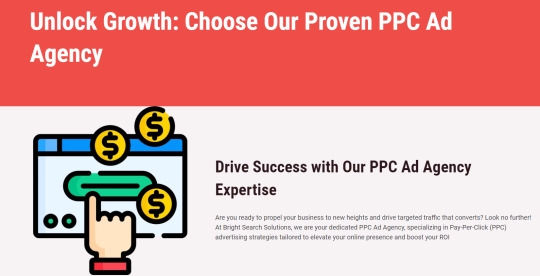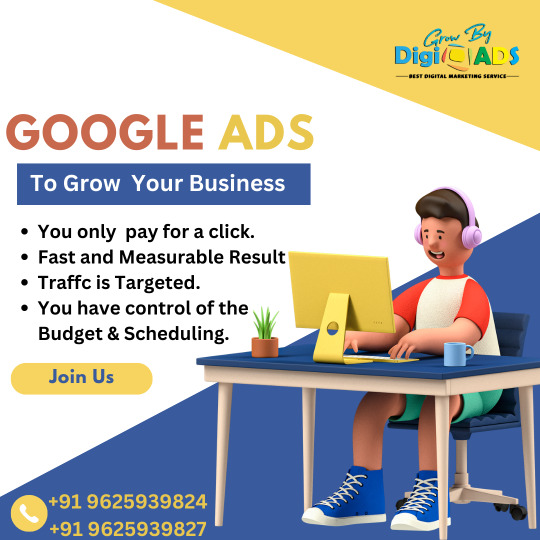#google advertising consulting
Explore tagged Tumblr posts
Text
Our Digital Marketing & SEO Success Partner | BM Consulting

Partner with BM Consulting for customized digital marketing and e-commerce solutions. From SEO to PPC, our strategies deliver measurable results to help your business thrive in a competitive market. https://www.bmconsulting.in
#bm marketing#bm consulting#bm in social media#marketing consulting#facebook ads consulting#google advertising consulting#shopify e-commerce#digital marketing services#digital marketing#digital marketing techniques#shopify consulting pune#consulting pune#shopify consulting#shopify consulting services#digital marketing characteristics#Shopify e-commerce#shopify store consultant#shopify developer agency#Shopify Web Development Agency#digital marketing agency#Search Engine Marketing Services#facebook marketing consultants#ppc specialist#ads on google maps#consulting companies in pune#website analysis#Email Marketing Strategies for Ecommerce
0 notes
Text
#digitalmarketingagencyinlucknow#digital marketing company in lucknow#seo services#performance marketing#google ads#facebook ads#marketing agency#advertising agency#branding agency#e-commerce agency#website designing#internet marketing service#marketing consultant#social media marketing
3 notes
·
View notes
Text

#Digital Marketing Agency#Social Media Marketing Agency#Google Ads Agency#Digital Marketing Consultant#Pay Per Click Advertising Company
0 notes
Text

PPC Services are designed to drive instant traffic and improve conversions through targeted ad campaigns. As a leading Digital Marketing Service Provider, we specialize in Pay Per Click Management, integrated with Search Engine Optimization (SEO), Search Engine Marketing (SEM), and Social Media Marketing (SMM). Our services, including Google Ads, Facebook Advertising, and Email Marketing, enhance Online Marketing strategies across platforms like YouTube, Facebook, LinkedIn, Instagram, and Google for measurable results.
#Search Engine Optimization#Digital Marketing Service Provider#Search Engine Marketing#SEO#SEM#SMM#SMO#Social Media Marketing#Email Marketing Services#SEO Consultancy#Facebook Advertising Services#Online Marketing#Google Ads#Pay Per Click Management#PPC Services#YouTube#Facebook#LinkedIn#Instagram#Google Advertisement Service
1 note
·
View note
Text
Unlock Brand Success with 88gravity: From SEO to Influencer Marketing and Beyond
Unlock the full potential of your brand with 88gravity’s comprehensive Digital Marketing Services! From SEO to PPC, social media to content creation, we’ve got you covered.
Elevate your online presence with expert website design, influencer marketing, and reputation management. Let’s make your brand stand out!
#Digital Marketing Services#SEO Services#PPC Campaigns#Social Media Marketing#Content Marketing#Email Marketing#Online Reputation Management#Conversion Rate Optimization#Digital Strategy Consulting#Influencer Marketing#Google Ads Management#Facebook Ads#Instagram Marketing#Video Marketing#Mobile Marketing#Affiliate Marketing#Paid Advertising#Lead Generation Services#E-commerce Marketing Solutions#Brand Building Strategies.
0 notes
Text
Digital Marketing Strategy Dallas - Dossier Media
What are the 5 main strategies of digital marketing?
Main Strategies of Digital Marketing
Digital marketing encompasses a variety of strategies that businesses use to reach their target audiences effectively. Here are five main strategies commonly employed:

Search Engine Optimization (SEO) SEO involves optimizing your website and content to rank higher in search engine results. This strategy focuses on improving organic traffic by using relevant keywords, creating high-quality content, and enhancing user experience on the site.
Content Marketing This strategy revolves around creating and distributing valuable, relevant content to attract and engage a target audience. It includes blog posts, videos, infographics, and podcasts, aiming to build brand awareness and establish authority in the industry.
Social Media Marketing Utilizing platforms like Facebook, Instagram, Twitter, and LinkedIn, social media marketing helps businesses connect with their audience, promote products, and enhance brand visibility. It also allows for direct interaction with customers, fostering community engagement.
Email Marketing Email marketing is a direct way to communicate with potential and existing customers. It involves sending newsletters, promotional offers, and personalized content to keep your audience informed and engaged, ultimately driving conversions.
Pay-Per-Click (PPC) Advertising PPC is a paid advertising strategy where businesses pay for their ads to appear on search engines and social media platforms. This approach allows for immediate visibility and can be highly targeted based on user demographics and behavior.
These strategies can be used individually or in combination to create a comprehensive digital marketing plan that meets specific business goals.
#google paid media dallas#paid advertising services dallas#paid ad agency dallas#media planning optimization dallas#media campaign analytics#paid ads consulting dallas#dallas paid advertising agency
0 notes
Text

PPC Agency Advertising Strategies for Small Businesses
Discover effective PPC advertising strategies tailored for small businesses. Maximize your budget and drive traffic with expert tips and insights.
For more information: https://itwebandcloud.co.uk/ppc-services/
#ppc agency#ppc company#ppc consultant#ppc expert#ppc services#paid advertising agency#paid advertising services#paid advertising company#paid advertising specialist#google ads advertising agency#hire ppc experts
0 notes
Text
Looking for the best White Label Digital Marketing Agency?
#marketing digital marketing#digital marketing marketing#digital marketing services#digital marketing agency#online marketing#digital marketing company#digital marketing near me#digital marketing agency near me#digital marketing firms#lead generations#marketing agency digital#digital agency marketing#digital marketing and advertising agency#online internet marketing#freelance digital marketing#google digital marketing#digital advertising#marketing agency near me#internet marketing#digital marketing strategy#online digital marketing#web marketing#digital marketing companies near me#digital marketing consultant#best digital marketing agencies#seo digital marketing#digital marketing websites#best digital marketing companies#digital marketing for real estate#digital marketing services near me
0 notes
Text
digital marketing service in Paschim vihar
Looking for the best digital marketing service in Paschim vihar? Look no further than Dynamic Futuretech. Our cutting-edge strategies will help your business thrive online
#digital marketing service#digital marketing agency#online marketing#digital marketing company#internet marketing#social media marketing agency#google digital marketing#digital advertising#digital marketing consultant#best digital marketing service#best digital marketing agency#best online marketing#best digital marketing company#best internet marketing#best social media marketing agency#best google digital marketing#best digital advertising#best digital marketing consultant
1 note
·
View note
Text

Unlock Growth: Choose Our Proven PPC Ad Agency
#PPC Advertising Services#Google Ads Specialists#Geo-Targeted PPC#PPC Consultancy#Social Media PPC#Ad Performance Analytics
0 notes
Text








Website : https://localmanagementservices.com/
Address : Local Management Services, International House, 101 King's Cross Road, London, WC1X 9LP
Phone : +44 1144055076
Boost your local footprint with Local Management Services, your dedicated ally in local creation, optimisation and management. We have an incredibly friendly and dedicated UK support team standing by to help you with any questions or concerns.
Business mail : [email protected]
#Local Management Services#Google Profile Management#Google Optimisation Service#Google My Profile Setup Service#Google Business Profile Management#Google Business Profile Optimisation Service#Google Business Profile Setup Service#Google Business Profile Support Service#Marketing agency#Consultant#Advertising agency#Marketing consultant
1 note
·
View note
Text

#digital marketing agency#google ads agency#social media marketing agency#digital marketing consultant#hubspot agency partner#marketing bureau gent#pay per click advertising company#social media bureau#full service online marketing bureau#google ads-bureau
0 notes
Text

SEO Consultancy is vital for enhancing online visibility and driving organic traffic. As an experienced Digital Marketing Service Provider, we offer comprehensive Search Engine Optimization (SEO) strategies integrated with Search Engine Marketing (SEM), Social Media Marketing (SMM), and Pay Per Click (PPC) Management. Our services include Google Ads, Facebook Advertising Services, and Email Marketing Services, ensuring effective Online Marketing across platforms like YouTube, Facebook, LinkedIn, Instagram, and Google.
#Search Engine Optimization#Digital Marketing Service Provider#Search Engine Marketing#SEO#SEM#SMM#SMO#Social Media Marketing#Email Marketing Services#SEO Consultancy#Facebook Advertising Services#Online Marketing#Google Ads#Pay Per Click Management#PPC Services#YouTube#Facebook#LinkedIn#Instagram#Google Advertisement Service
1 note
·
View note
Text
youtube
Contact with Leading Google Advertising Agency to Get Top-notch Online Advertising Services in USA
TiTech Marketing offers top-class Google AdWords advertising services in the USA. Hire this renowned agency to get more customers for your company.
0 notes
Text
Boost Your Online Presence with Fatweb: Your Trusted SEO Agency in Wellington
In today's digital age, having a strong online presence is crucial for businesses of all sizes. Whether you're a local shop or a multinational corporation, the success of your online venture largely depends on how well your website ranks on search engines. In Wellington, New Zealand, many businesses have turned to SEO (Search Engine Optimization) to improve their online visibility and connect with their target audience. If you're seeking to enhance your website's performance on search engines, look no further than Fatweb, the leading SEO agency in Wellington.

Link:
Unlock the Potential of SEO in Wellington
Wellington, known for its vibrant culture and bustling business environment, is home to a diverse range of businesses. Whether you're running a café in Cuba Street or a tech startup in the heart of the city, the competition to stand out online is fierce. This is where the expertise of a reputable SEO company like Fatweb comes into play.
SEO Services WellingtonFatweb offers a comprehensive suite of SEO services tailored to your specific needs. Their team of SEO experts understands the Wellington market inside and out. With their local expertise, they can help your business target the right keywords and optimize your website for local search results.
SEO Consultant WellingtonAs a business owner, you may not have the time or knowledge to navigate the complexities of SEO. Fatweb's dedicated SEO consultants in Wellington are here to guide you through the process. They will conduct a thorough analysis of your website and create a customized SEO strategy to drive organic traffic and boost your rankings.
Wellington Search Engine OptimisationWellingtonians value authenticity and trustworthiness in their interactions. Fatweb understands the unique characteristics of the Wellington market and can optimize your website to reflect these values. They'll ensure that your online presence resonates with the local audience, helping you build a strong brand image.
SEO WellingtonWhen it comes to SEO in Wellington, Fatweb is the name you can trust. They have a proven track record of helping businesses in the region achieve top rankings on search engines like Google. Their results-driven approach focuses on delivering tangible results, such as increased website traffic and higher conversion rates.
Why Choose Fatweb?
Proven Results: Fatweb has a long history of success in the Wellington market, with numerous satisfied clients who have seen significant improvements in their online visibility and revenue.
Local Expertise: Being a local SEO agency, Fatweb understands the unique challenges and opportunities in Wellington. They leverage this knowledge to develop effective SEO strategies for your business.
Transparent Reporting: Fatweb believes in transparency. They provide regular reports on the progress of your SEO campaigns, so you can see the impact of their work firsthand.
Customized Solutions: Every business is unique, and Fatweb recognizes that. They tailor their SEO solutions to align with your specific goals and target audience.
Conclusion
In the highly competitive digital landscape of Wellington, SEO is not an option; it's a necessity. To ensure your business thrives online and reaches its full potential, partner with Fatweb, the leading SEO agency in Wellington. With their expertise, dedication, and commitment to delivering results, Fatweb can help your business climb the search engine rankings and stay ahead of the competition. Don't miss out on the benefits of SEO – contact Fatweb today and take the first step towards online success.
#google ads agency wellington#google adwords wellington#google ads wellington#seo company wellington#wellington seo agency#search engine optimization wellington#seo services wellington#seo consultant wellington#wellington search engine optimisation#seo wellington#advertising agencies wellington#advertising companies wellington#ppc advertising nz#facebook ad agency near me#advertising agency wellington#adwords management wellington#adwords wellington.
0 notes
Text
@digi_ads_

#Take Your Business To Next Level And Grow Your Audience📍#•#We provide various digital services like -#⭐️ Social Media Marketing#⭐️ SEO#⭐️ Paid Advertising (Facebook Ads#Instagram Ads#Google Ads)#⭐️ Content Writing#DM us or contact @digi_ads_#📞+91 9625939824#for consultation and more info#FACEBOOK LINK https://www.facebook.com/profile.php?id=100093597170215#LINKDEN LINK https://www.linkedin.com/in/grow-by-digiads-030570280/#TWITTER LINK https://twitter.com/GDigiads63443#PINTEREST https://in.pinterest.com/digi_ads_/#gda#gdaonline#digitalmarketingagencyonline#digitalmarkeing#digitalmarketingservices#socialmediamarketing#socialmediamarketingagency#socialmedia#socialmediatips#marketingstrategy#digitalmarketingstrategy#GoogleAdsTips#AdWordsTips#PPCMarketing
0 notes